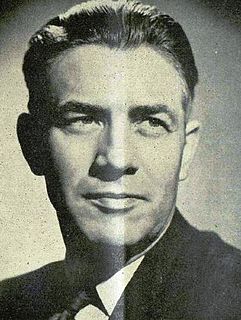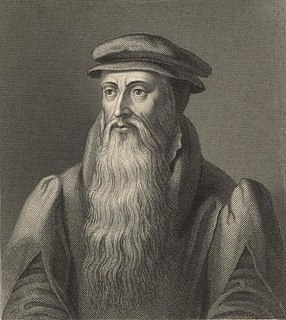A Quote by Thomas Jefferson
Every man's reason is his own rightful umpire. This principle, with that of acquiescence in the will of the majority, will preserve us free and prosperous as long as they are sacredly observed.
Related Quotes
As long as the reason of man continues fallible, and he is at liberty to exercise it, different opinions will be formed. As long as the connection subsists between his reason and his self-love, his opinions and passions will have a reciprocal influence on each other, and the former will be objects to which the latter attach themselves.
To affirm life is to deepen, to make more inward, and to exalt the will-to-life. At the same time the man who has become a thinking being feels a compulsion to give every will-to-live the same reverence for life that he gives to his own. He experiences that other life as his own. He accepts as being good: to preserve life, to raise to its highest value life which is capable of development; and as being evil: to destroy life, to injure life, to repress life which is capable of development. This is the absolute, fundamental principle of the moral, and it is a necessity of thought.
Condemn no man for not thinking as you think. Let every one enjoy the full and free liberty of thinking for himself. Let every man use his own judgment, since every man must give an account of himself to God. Abhor every approach, in any kind or degree, to the spirit of persecution, if you cannot reason nor persuade a man into the truth, never attempt to force a man into it. If love will not compel him to come, leave him to God, the judge of all.
I've always told Will, 'You can do whatever you want as long as you can look at yourself in the mirror and be okay.' Because at the end of the day, Will is his own man. I'm here as his partner, but he is his own man. He has to decide who he wants to be, and that's not for me to do for him. Or vice versa.
In the first section of the Doctrine and Covenants we read that 'the Lord shall come to recompense unto every man according to his work, and measure to every man according to the measure which he has measured to his fellow man.' (D&C 1:10.) This principle, showing the manner by which God will judge us, puts a new light upon the commandment to love our neighbors as ourselves, and should persuade us to take that law seriously.
The general consent of all that sect is that God (by his foreknowledge, counsel, and wisdom) has no assured election, neither yet any certain reprobation, but that every man may elect or reprobate himself by his own free will, which he has (say they) to do good or evil ... [All these things are] forged by their own brains, and polished by the finest of their wits, when yet in very deed they are but the rotten heresies of ... Pelagius, long ago confuted by Augustine.
To believe that He will preserve us is, indeed, a means of preservation. God will certainly preserve us, and make a way of escape for us out of the temptation, should we fall. We are to pray for what God has already promised. Our requests are to be regulated by His promises and commands. Faith embraces the promises and so finds relief.
The goal of faithfulness is not that we will do work for God, but that He will be free to do His work through us. God calls us to His service and places tremendous responsibilitie s on us. He expects no complaining on our part and offers no explanation on His part. God wants to use us as He used His own Son.
A wise man will not leave the right to the mercy of chance, nor wish it to prevail through the power of the majority. There is but little virtue in the action of masses of men. When the majority shall at length vote for the abolition of slavery, it will be because they are indifferent to slavery, or because there is but little slavery left to be abolished by their vote. They will then be the only slaves. Only his vote can hasten the abolition of slavery who asserts his own freedom by his vote.






























